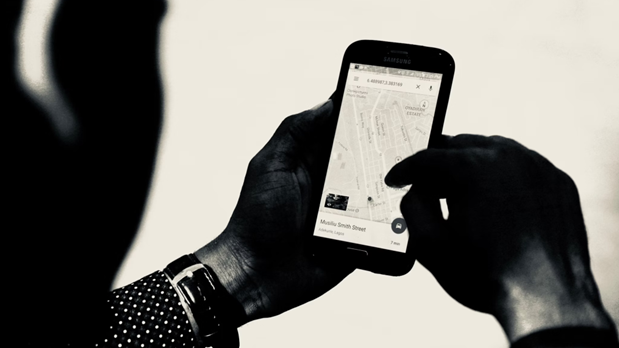
Blog post -
Navigating Geolocation: The Top Tools for Mobile App Developers in 2024
Many businesses leverage mobile technology to enhance customer interactions. Geolocation technology is one of the most revolutionary advancements in this space, which allows applications to offer personalized, location-based services.
With projections indicating substantial revenue growth through targeted geographical offers, integrating geolocation features is becoming essential to mobile app development.
Recent statistics reveal that 50 percent of U.S. adults regularly use location-based applications. However, developers face the challenge of selecting the right tool from a wide array of options to meet these demands effectively. This guide explores the top geolocation tools for mobile app developers in 2024, examining their functionalities, ease of integration, and scalability.
The Role of Geolocation Technology
Geolocation technology is a foundational element in modern mobile app development, significantly enhancing user experiences by providing location-aware features. It uses satellite and network data to determine a user's physical location, enabling apps to deliver services and content relevant to that position.
Geolocation enhances user experiences and serves as a strategic asset for businesses aiming to boost their bottom line. Integrating geolocation into mobile apps will drive increased business revenue by enabling companies to offer more targeted and location-specific promotions, enhance customer engagement, and streamline operations.
Key Benefits of Geolocation in Apps
Geolocation technology unlocks a range of powerful features that enhance user experience, support business strategies, and enable innovative functionalities. Below are the key ways apps benefit from integrating geolocation:
Enhancing user engagement
Geolocation significantly boosts user engagement by offering personalized content and services based on a user's specific location. This personalization can range from suggesting nearby restaurants to delivering hyper-local news updates, making the app experience relevant and engaging.
Increasing business foot traffic
Businesses can leverage geolocation to increase physical store visits by deploying location-based promotions and incentives. For instance, a coffee shop app might offer a discount to users who check in at a nearby location, encouraging them to visit and make a purchase.
Enabling advanced features
Geolocation technology enables developers to incorporate advanced features such as geofencing. This functionality triggers specific actions when users enter or leave predefined areas, which can be used for automated check-ins, security alerts, or personalized marketing messages.
Challenges in Implementing Geolocation
While geolocation technology offers significant advantages, its implementation comes with several challenges that developers must navigate to ensure seamless functionality and user trust. Below are some of the key hurdles:
Privacy concerns and data accuracy
Despite its benefits, implementing geolocation technology presents challenges, particularly concerning user privacy and data accuracy. Developers must ensure that user location data is secure and not misused, which requires compliance with data protection regulations such as GDPR.
Navigating regulatory requirements
Developers must also adhere to regulatory requirements to handle user data responsibly and securely. This involves obtaining explicit user consent for location tracking and providing transparency about how the data will be used.
Technical compatibility issues
Technical challenges include ensuring compatibility across different devices and operating systems. Developers must ensure that their geolocation services function seamlessly regardless of the user's device or software version, requiring thorough testing and optimization.
Top Geolocation Tools for Developers in 2024
As geolocation technology continues to evolve, developers have access to more tools that enhance app functionality with location-based features. Below are some of the top geolocation tools available in 2024:
Radar
Radar is one of the best Google Maps alternatives. It offers seamless integration with mobile apps and provides developers with scalable and flexible geolocation services. Its platform supports advanced features like geofencing and location-based analytics, enhancing app functionality. Compared to Google Maps, Radar provides more competitive pricing and enriched location data, making it a preferred choice for many developers.
Google Maps
Google Maps is renowned for its extensive mapping data and reliable navigation features. It offers robust APIs that allow developers to integrate geolocation functionalities into their apps easily. However, its pricing model can be a drawback for smaller developers, making alternatives like Radar more appealing.
Choosing the Right Geolocation Tool for Your App
Selecting the best geolocation tool requires careful consideration of several factors to make sure it aligns with your app’s goals and provides an optimal user experience. Below are key aspects to evaluate when making your choice:
Evaluate integration and scalability
Developers should assess their app's requirements and user expectations to make informed decisions. Consider how easily the tool integrates with your existing app infrastructure and its potential for scaling as your user base grows.
Consider cost
Analyze the pricing models of different geolocation tools to determine which offers the best value for your budget. Consider any added costs associated with advanced features or increased usage.
Assess feature sets
Identify the specific features your app requires, such as geofencing, real-time tracking, or location-based analytics. Compare the feature sets of different tools to ensure they align with your app's goals and user needs.
Embracing the Future of Geolocation in Mobile Apps
As geolocation technology evolves, developers have unprecedented opportunities to enhance app experiences. Developers can create innovative, location-aware apps that engage users and drive business growth by choosing the right tools and strategies. Geolocation has immense potential to transform apps and meet the demands of a progressively mobile world.